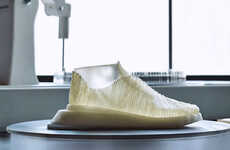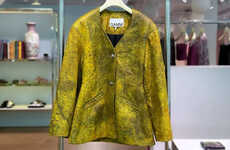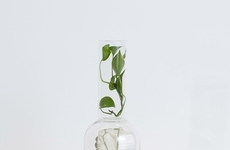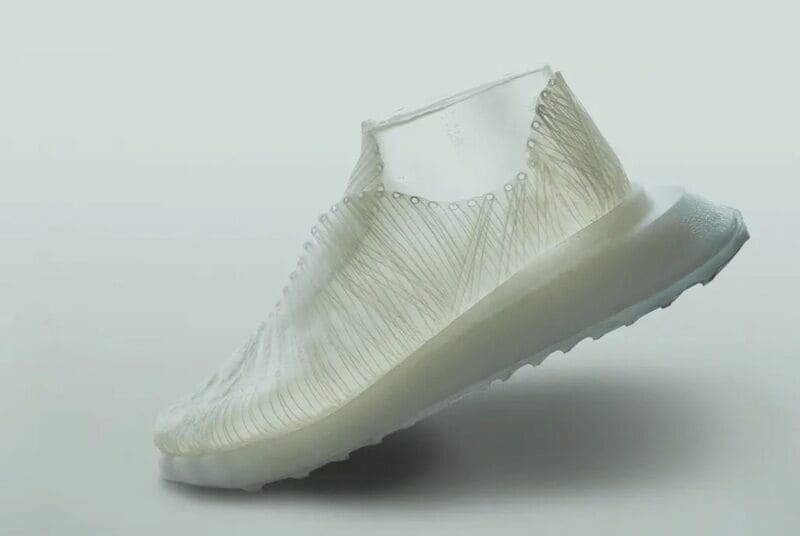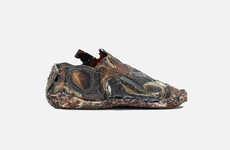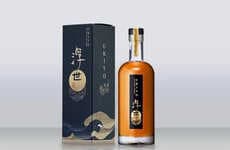
Modern Synthesis Uses Plant Waste to Grow Microbial Textiles
References: modern-synthesis & designtaxi
Biotechnology company Modern Synthesis makes use of sugar drawn from plant waste and other microbes in order to grow 'microbial textiles.' This process ultimately leads to a sustainable option for the traditional fabric to construct footwear through bacterial fermentation.
The material at the end of this process looks something like nylon or a coated textile with a feel that is similar to paper without fragility. This is an eco-friendly material that can be dyed and also be given a fusion of coatings, making it versatile to work for. The shoes that are made from this material are not available to purchase but there is a new lab in South London that has been working on creating prototypes to test and work with.
Image Credit: Modern Synthesis
The material at the end of this process looks something like nylon or a coated textile with a feel that is similar to paper without fragility. This is an eco-friendly material that can be dyed and also be given a fusion of coatings, making it versatile to work for. The shoes that are made from this material are not available to purchase but there is a new lab in South London that has been working on creating prototypes to test and work with.
Image Credit: Modern Synthesis
Trend Themes
1. Sustainable Footwear Materials - The use of microbial textiles grown from plant waste can disrupt the traditional fabric industry to produce eco-friendly footwear materials.
2. Bacterial Fermentation Processes - The process of using bacterial fermentation to produce microbial textiles can potentially disrupt the textile industry by providing a sustainable alternative to traditional fabric production.
3. Innovative Eco-friendly Materials - The development of new eco-friendly materials like microbial textiles can disrupt the fashion industry and lead to more sustainable fashion practices.
Industry Implications
1. Footwear - Microbial textiles can disrupt the traditional footwear industry and provide a more sustainable option for producing shoes.
2. Textile - Microbial textiles and bacterial fermentation processes can potentially disrupt the traditional fabric industry and lead to more sustainable textile production practices.
3. Fashion - Innovative eco-friendly materials like microbial textiles can disrupt the fashion industry and lead to a more sustainable future for fashion.
7.5
Score
Popularity
Activity
Freshness


